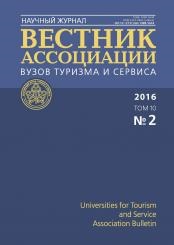Moscow, Russian Federation
Moscow, Russian Federation
Moscow, Russian Federation
The article is devoted to the topic of using the method of role-playing games / simulations in teaching students a foreign language. Special attention is paid to the question how this method can be used in universities to encourage students to use maximally the foreign language in class. The authors pay attention to the fact that the types of role-playing games can be different depending on the level of difficulty and language skills of the students, and that the correct choice of role-play appropriate to the level of the group knowledge is required. The article demonstrates that role playing games are extremely useful and can help students to root their knowledge and to learn a foreign language for professional purposes. The practical significance of the article is that role play is methods of teaching focused on students and it develops their communicative competence. The authors have the opinion that role-playing games contribute to apply theoretical knowledge in practice, thus bridging the gap between theory and practice. Role playing is also extremely effective to learn the real world and to improve professional skills. The authors note that the working out role-playing games requires a good organizational training. The author focuses on the fact that the gaming method contributes to the development and improvement of skills of communication and improves the skills of cooperation and team work. This paper shows that the classes with role-playing games put students in real situations, teaching them such skills as the ability to follow phone calls, to book hotel, to order food in restaurants, talk with the seller in the shop, to negotiate, to be interviewed for employment, to exchange opinions and to debate in a foreign language.
communicative competence, foreign language teaching, cross-cultural communication, competence approach, interactive teaching methods, gaming technology, role-playing, simulations, conversational skills
1. Andreeva A. I., Gozalova M. R., Loseva E. S. Vozmozhnosti «Blended Learning» v sisteme rossiyskogo vysshego obrazovaniya // European Social Science Journal (Evropeyskiy zhurnal social'nyh nauk). 2016. № 3. S. 210-216.
2. Bedrina V.V., Petrova E.I., Tarasova E.Yu., Smirnova N.A. Rolevye igry kak faktor formirovaniya obschekul'turnyh i professional'nyh kompetenciy // Elektronnyy nauchno-metodicheskiy zhurnal Omskogo GAU (elektronnyy zhurnal). 2015. № 2 (2). S. 94-103.
3. Valeev A.A., Kondrat'eva I.G. Metodicheskie problemy obucheniya inostrannomu yazyku v kontekste mezhkul'turnoy kommunikacii // Inostrannye yazyki v sovremennom mire: infokommunikacionnye tehnologii v kontekste nepreryvnogo yazykovogo obrazovaniya. Sb. materialov VII Mezhdunarodnoy nauchno-prakticheskoy konferencii / Pod nauch. red. F.L. Ratner. 2014. S. 536-543.
4. Gozalova M.R. Proektnaya deyatel'nost' kak odin iz metodov razvitiya kommunikativnoy kompetencii // Servis v Rossii i za rubezhom. 2014. № 2(49). C. 89-97.
5. Il'inova E.V. Ispol'zovanie kommunikativnogo metoda (igr) pri obuchenii inostrannomu yazyku // Nauchnye trudy Kubanskogo gosudarstvennogo tehnologicheskogo universiteta. 2015. № 11. S. 338-343.
6. Raptanova I.N. Tehnologiya simulyacii kak effektivnyy metod obucheniya inostrannomu yazyku. Novoe slovo v nauke i praktike: gipotezy i aprobaciya rezul'tatov issledovaniy. 2014. № 9. S. 31-36.
7. Sahno E.M., Logvina S.A. Psihologicheskie faktory, opredelyayuschie process obucheniya professional'noy leksike // Simvol nauki. 2016. № 4−2. S. 175-178.
8. Spatar'-Kozachenko T.I. Rol' inostrannyh yazykov v formirovanii krosskul'turnogo i servisnogo prostranstva (na primere yazykov, rasprostranennyh na territorii sovremennoy Ispanii) // Servis v Rossii i za rubezhom. T. 9. 2015. № 2 (58). S. 204-216.
9. Shayhislamova L.F. Rolevye igry na osnove informacionno-kommunikacionnyh tehnologiy v obuchenii dialogicheskoy rechi studentov neyazykovyh vuzov // Filologicheskie nauki. Voprosy teorii i praktiki. 2015. № 2-1 (54). S. 201-204.
10. Burns, A. C., & Gentry, J. W. (1998). Motivating students to engage in experiential learning: a tension-to-learn theory. Simulation and Gaming, 29, 133-151.
11. Christopher, E. M. & Smith, L. E. (1990). Shaping the content of simulation/games. In D. Crookall & R. L. Oxford (Eds.), Simulation, gaming, and language learning (pp. 47-54). New York: Newbury House.
12. Cummings, M.G., & Genzel, R. B. (1990). Simulation/game design and adaptation. In D. Crookall & R. L. Oxford (Eds.), Simulation, gaming, and language learning (pp. 67-72). New York: Newbury House.
13. Jones, K. (1982). Simulations in language teaching. (pp. 35-56). Cambridge: Cambridge U. Press.
14. Kaplan, M. A. (1997). Learning to converse in a foreign language: the Reception Game. Simulation and Gaming, 28, 149-163.
15. Ladousse, G. P. (1987). Role play. (pp. 102-107). Oxford: Oxford University Press.
16. Richards, J. C. & Rodgers, T. S. (1986). Approaches and methods in language teaching. Cambridge: Cambridge University Press. pp. 45-48.
17. Sadow, S. A. (1987). Speaking and listening: imaginative activities for the language class. In W. M. Rivers (Ed.), Interactive language teaching (pp. 33-43). Cambridge: Cambridge University Press.
18. Scarcella, R. & Crookall, D. Simulation/gaming and language acquisition. In D. Crookall & R. L. Oxford (Eds.), Simulation, gaming, and language learning. New York: Newbury House. 1990. pp. 223-230.
19. Scarcella, R. & Oxford, R. L. (1992). The tapestry of language learning. Boston: Heinle and Heinle. pp. 235-238.
20. Skehan, P. (1998b). Task based instruction. In Grahe, W. (Ed.), Annual review of applied linguistics. Cambridge: Cambridge University Press. pp. 268-286.





